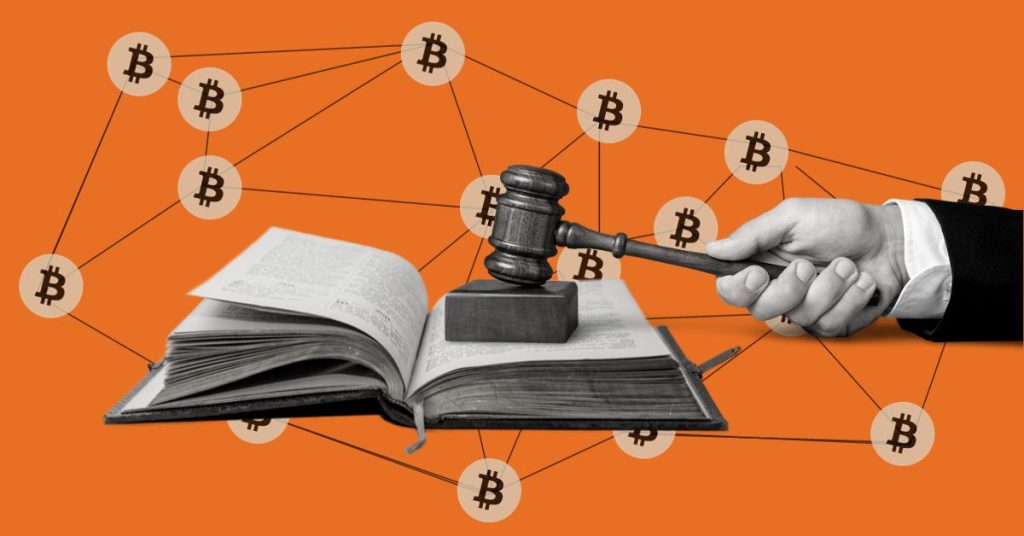ARTICLE AD BOX

The post From Kraken to Robinhood: Crypto Giants Confront SEC’s Expanding Grip appeared first on Coinpedia Fintech News
Recent regulatory actions by the U.S. Securities and Exchange Commission have drawn criticism not only from the common public but also from professionals. Multiple crypto exchanges and platforms have raised concerns about the SEC’s rigid behavior towards the crypto industry.
From Kraken to Coinbase and now Robinhood, the SEC’s aggressive stance has made some question whether the agency is exceeding its authority and potentially stifling innovation in the crypto industry.
Allegations of Regulatory Overreach
Ryan Sean Adams, a well-known crypto advocate, shared his thoughts on the matter, stating that the SEC’s lawsuits against various crypto platforms for “helping regular Americans access crypto” might harm the industry and affect political outcomes.
As Adams noted, “The SEC is now suing Kraken, Coinbase, Uniswap, Metamask, and now Robinhood for the crime of helping regular Americans access crypto. This level of regulatory overreach has destroyed the legitimacy of the SEC and may lose the Democrats the election. Voters don’t want this.”
However, its not just Ryan who has expressed his dissatisfaction witht eh SEC’s hostile approach towards crypto.
State AGs Push Back Against the SEC
The SEC’s lawsuit against Kraken which was filed last year has garnered opposition from a group of state attorneys general (AGs) from Montana, Arkansas, Iowa, Mississippi, Nebraska, Ohio, South Dakota, and Texas.
These AGs argue that the SEC is overstepping its bounds by expanding the definition of “investment contract” and that cryptocurrencies “are not automatically securities.”
The AGs, along with industry lobbyists and other participants, filed a joint amicus brief in support of Kraken, arguing that the SEC’s actions could harm consumers and undermine state laws designed to protect them.
The filing stated, “States have a strong interest in preventing the potential preemption of consumer protection and other state laws by the SEC’s attempt to regulate crypto assets as securities.”
SEC’s Wells Notices and Regulatory Concerns
Robinhood, a widely-used app for stock trading with a cryptocurrency arm, has recently been given a Wells notice from the SEC, which could be a sign of an impending enforcement action against its U.S. business in cryptocurrencies. The letter stated that the SEC may initiate further enforcement proceedings as a result of the claimed violations in connection with the securities registration.
Dan Gallagher, who is the Chief Legal, Compliance, and Corporate Affairs Officer at Robinhood, is very upset by the SEC’s method, suggesting that the latter’s crypto offerings are not securities.
He claimed, “We stick to the position that the assets which are listed on our platform are not securities,” as well as hinted that the major basis upon which the SEC case against Robinhood could have been built are flimsy.
Uniswap and the Decentralized Finance Sector
Uniswap, a well-known DEX, is also under attack from the SEC. The Wells notice served on Uniswap stands out because the regulator’s enforcement actions mostly target centralized exchanges. Uniswap’s Chief Legal Officer countered this argument by asserting that the SEC’s Wells notice and the expected enforcement action demonstrated “arbitrary enforcement and continued power abuse.”
This emergence of such an ecosystem leads to a dilemma about SEC’s regulatory frameworks for decentralized finance (DeFi) platforms. SEC’s attention is shifting to DeFi, which may have significant implications for the sector with resulting setbacks to its growth and innovation.
Is the SEC Overreaching?
The SEC’s aggressive approach against multiple crypto projects has raised the question if the agency is pushing its authority beyond the normal. Critics contend that the SEC’s far reach with its securities laws would be harmful to innovation and consumers, bypassing state laws. Whether these legal clashes will bring definite results or not, they will probably mold the future of the crypto business and its regulatory frameworks.
.png)
 8 months ago
4
8 months ago
4








 English (US)
English (US)